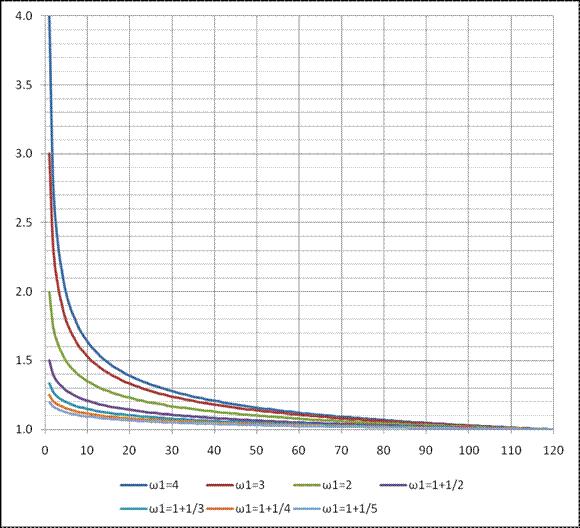
I had hardly published Weighted Retrodictive Ranking Violations 2.0 (and asked for comments) before I received suggestions for improvement from Kenneth Massey.
Dr. Massey suggested that the weighting factor in my formula would be more easily understood if the weight were at least 1 for all games (I'd required it be at least ½ and chose one that was at least 2/3.) The problem is that when I set the parameters in my formula to do that, ƒ(1,anyrank) becomes much too large.
(This is especially true when I try to use it to define another reasonable measure of schedule strength.. Using ƒ as defined in version 2.0, playing one game vs #1 would get you a top 10 schedule, even if you played Pop Warner teams in the other 11 games...)
It became obvious that if there is a function that applies to WRRV, Game Interest, and SOS, the ƒ(R1,R2) defined in WRRV 2.0 isn't it.
So instead of finding a function that looked useful for one purpose and trying to make it work for others, I refined the criteria. We want a function
| ƒ: { 1,2,3,...,M } → [1, ω1] |
|
We note:
| W(r) = Log ri Mj Mi+j |
|

It turns out to be useful to have a whole family of functions. First, it may be that for the putative new schedule strength metric we may want a different ω1 than we do for characterizing a rating's ranking violations. And as Brien Aronov suggests, we may want more than one choice for the WRRV function itself:
Since the "rank" is a random variable with some variance, and (hopefully) this variance decreases as the season wears on.....why not make the weights less "equal" the farther down the season you go?
So it may be appropriate to weight the first rankings with W(1) = 1.2 or so and gradually work up to W(1) = 2.